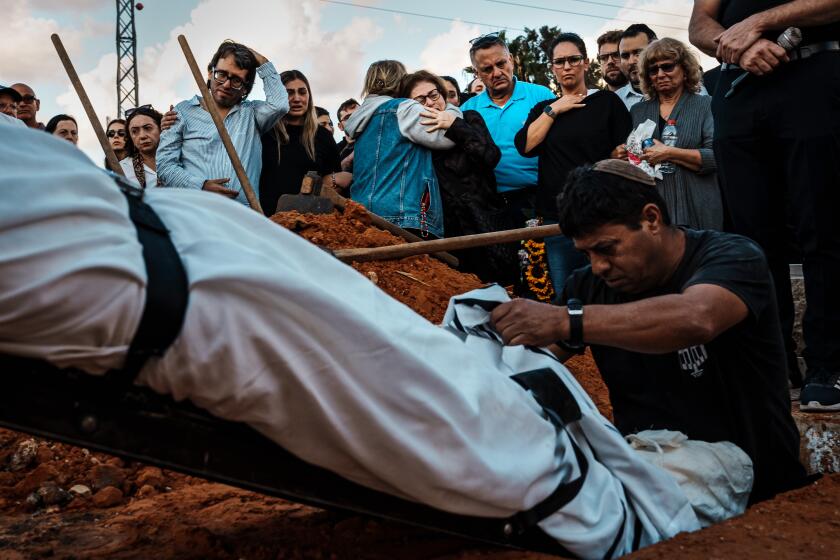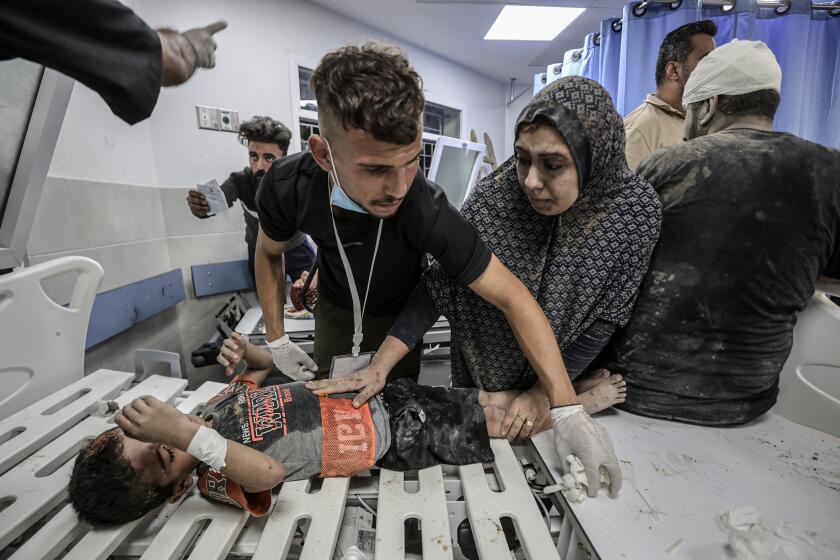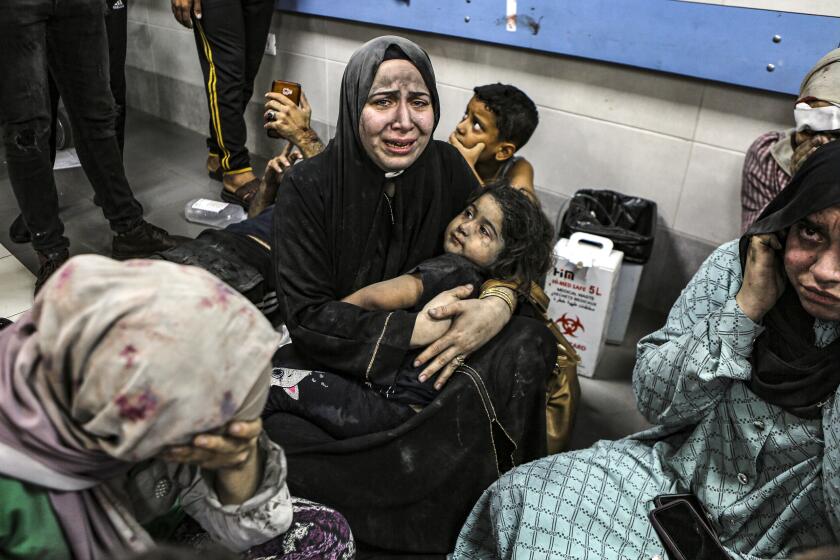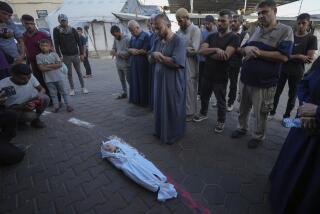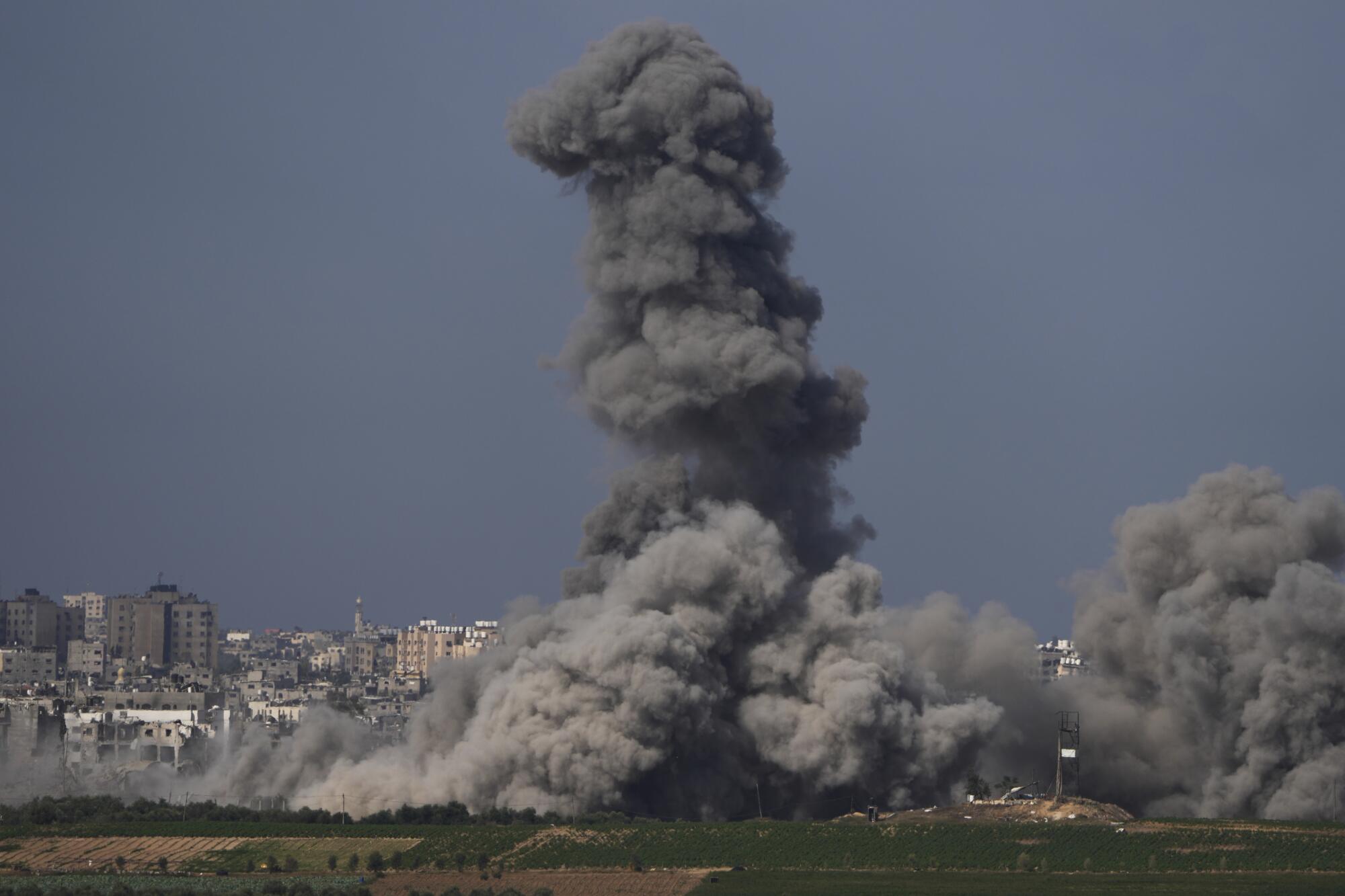
KHAN YUNIS, Gaza Strip — Hamas on Friday freed an American woman and her teenage daughter who had been held hostage in Gaza, Israel said, the first such release from among the roughly 200 people the militant group abducted from Israel during its Oct. 7 rampage.
Judith Raanan and her 17-year-old daughter, Natalie, were out of the Gaza Strip and in the hands of the Israeli military, an army spokesman said. Hamas said it released them for humanitarian reasons in an agreement with the Qatari government.
The release comes amid growing expectations of a ground offensive that Israel says is aimed at rooting out Hamas militants who rule Gaza. Israel said Friday it does not plan to take long-term control over the tiny territory, home to some 2.3 million people.
As the Israeli military punished Gaza with airstrikes, authorities inched closer to bringing aid from Egypt to desperate families and hospitals. Fighting between Israel and militants in neighboring Lebanon also raged, prompting evacuations of Lebanese and Israeli border towns as fears of a widening conflict grew.
Judith and Natalie Raanan had been on a trip from their home in suburban Chicago to Israel to celebrate Jewish holidays, the family said. They were in the kibbutz of Nahal Oz, near Gaza, on Oct. 7 — Simchat Torah, a festive Jewish holiday — when Hamas militants stormed into southern Israel, killing hundreds and abducting about 200 others.
The family had heard nothing from them since the attack and were later told by U.S. and Israeli officials that they were being held in Gaza, Natalie’s brother Ben said.
President Biden spoke with the two freed hostages and their relatives. The International Committee of the Red Cross, which transported the freed Americans from Gaza to Israel, said their release was “a sliver of hope.”
Israel-Hamas war: In Israel, a quest to identify unrecognizable bodies. In Gaza, bodies are piled and some stored in ice cream trucks as power fails.
Relatives of other captives welcomed the release and appealed for others to be freed. “We call on world leaders and the international community to exert their full power in order to act for the release of all the hostages and missing,” the statement said.
Hamas said in a statement that it was working with mediators “to close the case” of hostages if security circumstances permit. The group added that it is committed to mediation efforts by Egypt, Qatar and other countries.
Qatar said it would continue its dialogue with Israel and Hamas in hopes of winning the release of all hostages “with the ultimate aim of de-escalating the current crisis and restoring peace.”
Israeli military spokesman Rear Adm. Daniel Hagari said Israel was continuing to work to return hostages and find the missing, and its goals had not changed. “We are continuing the war against Hamas and ready for the next stage of the war,” he said.
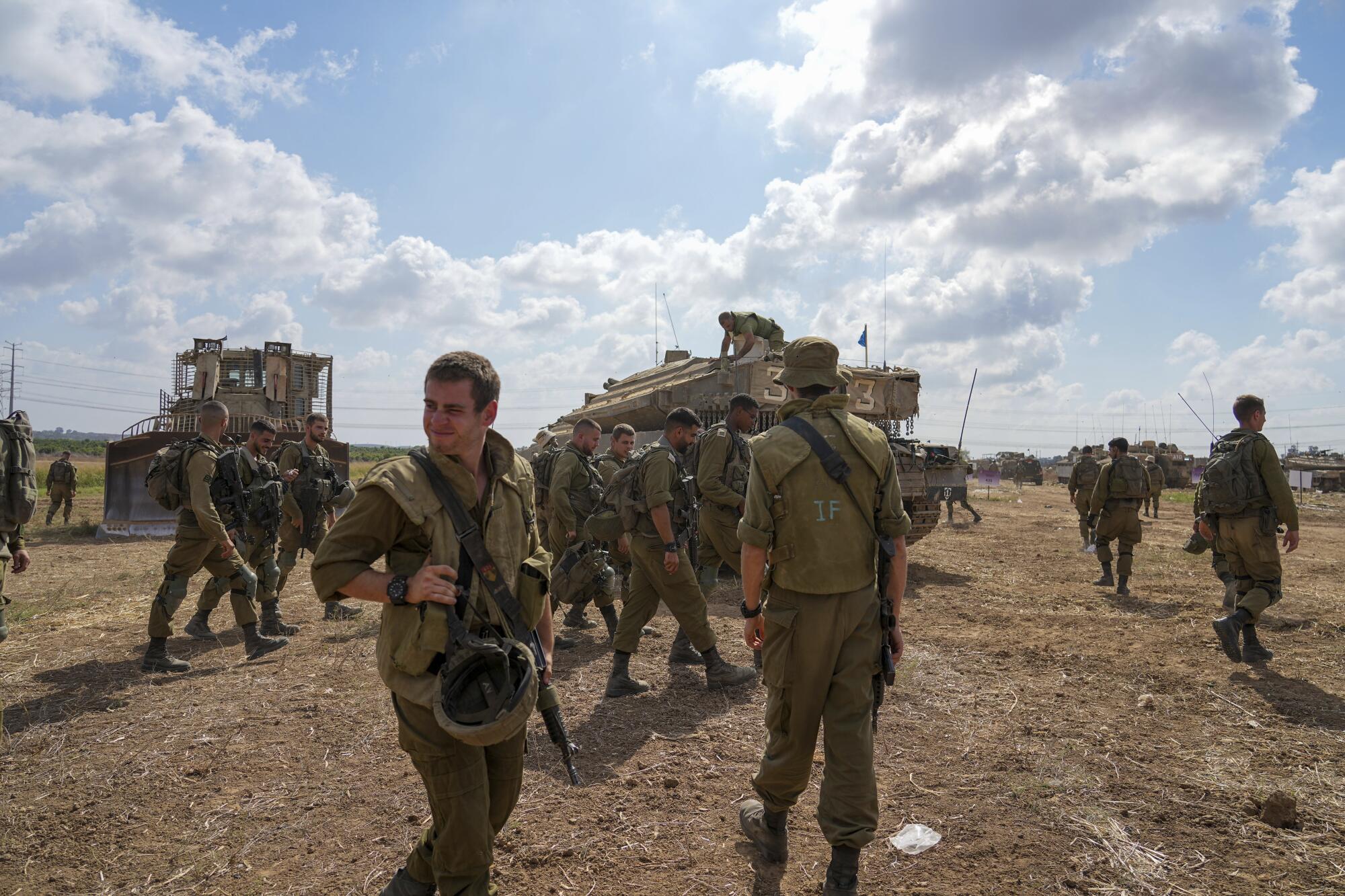
A potential Israeli ground assault is likely to lead to a dramatic escalation in casualties on both sides in urban fighting. More than 1,400 people in Israel have been killed in the war — mostly civilians slain during the Hamas incursion.
More than 4,100 people have been killed in Gaza, the majority of them women, children and older adults, according to the Health Ministry run by Hamas. That includes a disputed number of people who died in a hospital explosion this week.
After a hospital blast in Gaza, doctors struggling to save lives amid danger and dwindling supplies say they and the medical system are near collapse.
Speaking to lawmakers on Friday, Israeli Defense Minister Yoav Gallant laid out a three-stage plan that seemed to suggest Israel did not intend to reoccupy the territory it left in 2005.
First, Israeli airstrikes and “maneuvering” — a presumed reference to a ground attack — would aim to root out Hamas. Next will come a lower-intensity fight to defeat remaining pockets of resistance. And, finally, a new “security regime” will be created in Gaza along with “the removal of Israel’s responsibility for life in the Gaza Strip,” Gallant said.
Gallant did not say who Israel expected to run Gaza if Hamas is toppled or what the new security regime would entail.
Israel occupied Gaza from 1967 until 2005, when it pulled up settlements and withdrew soldiers. Two years later, Hamas took over. Some Israelis blame the withdrawal from Gaza for violence that has persisted since.
Israel and the Palestinian militant group Hamas appear set to go head-to-head on the ground in Gaza. What’s each side’s endgame?
The humanitarian crisis has worsened for Gaza’s civilians every day since Israel halted entry of supplies two weeks ago, depleting fuel, food, water and medicine. Two days after Israel announced a deal to allow Egypt to send in aid, the border remained closed Friday as Egypt repaired the Rafah crossing, damaged by Israeli strikes.
More than 1 million people have been displaced in Gaza, with many heeding Israel’s orders to evacuate the northern part of the sealed-off coastal enclave. But Israel has continued to bomb areas in southern Gaza where Palestinians had been told to seek safety. Although Prime Minister Benjamin Netanyahu called areas in southern Gaza “safe zones” earlier this week, Israeli military spokesman Nir Dinar said Friday: “There are no safe zones.”
Some Palestinians who fled from the north appeared to be going back because of bombings and difficult living conditions in the south, said Ravina Shamdasani, a spokesperson for the U.N. human rights office.
Palestinians in Gaza reported heavy airstrikes in Khan Yunis, a town in the territory’s south, and ambulances carrying men, women and children streamed into the local Nasser Hospital. The hospital, Gaza’s second largest, already was overflowing with patients and people seeking shelter.
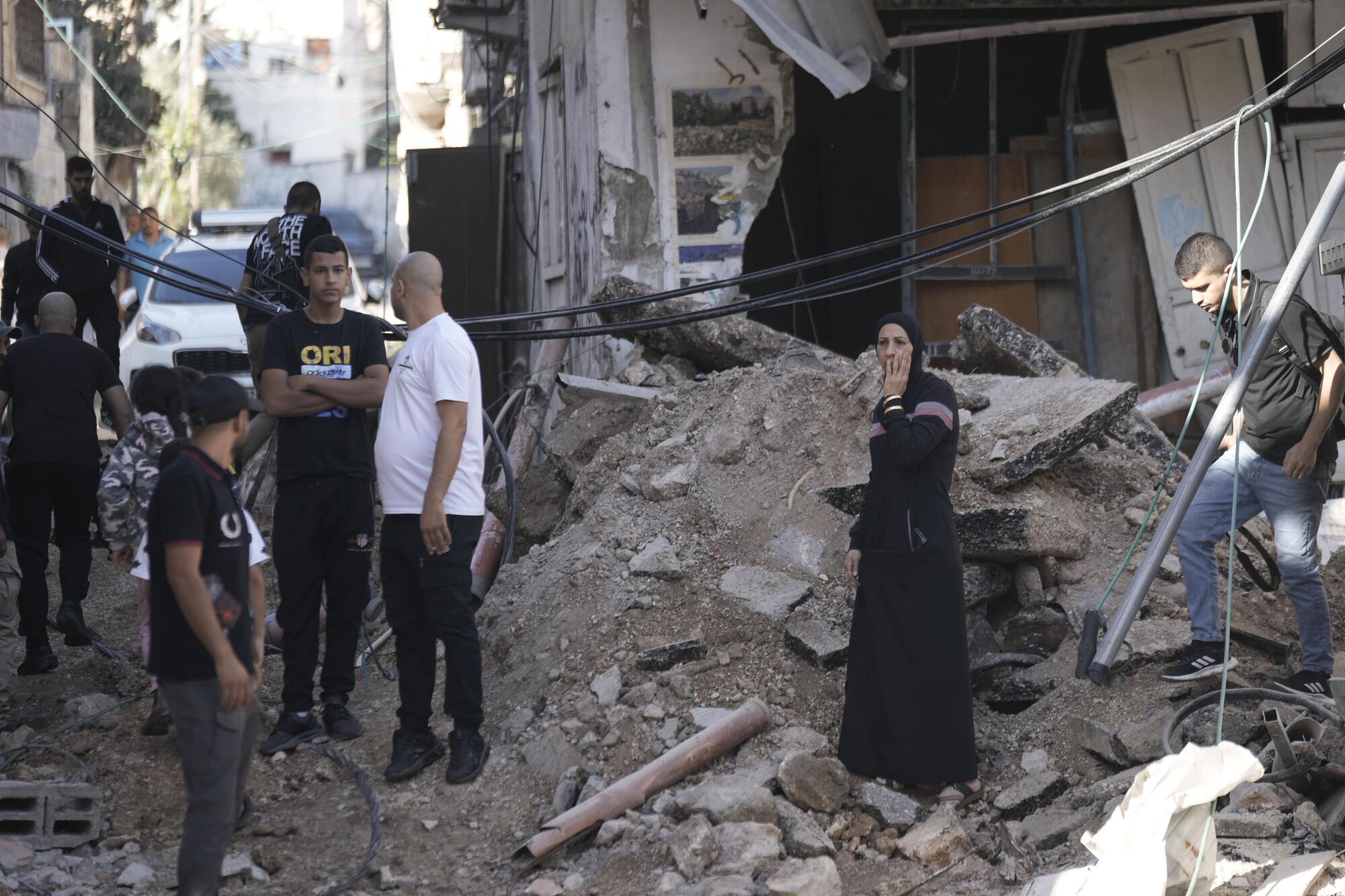
Gaza’s overwhelmed hospitals are rationing their dwindling medical supplies and fuel for generators, as authorities worked out logistics for a desperately needed aid delivery from Egypt that has yet to enter. Doctors in darkened wards across Gaza performed surgeries by the light of mobile phones and used vinegar to treat infected wounds.
The Palestine Red Crescent Society said it had received a threat from the Israeli military to bomb Al Quds Hospital. It said Israel has demanded the immediate evacuation of the Gaza City hospital, which has more than 400 patients and thousands of displaced civilians who sought refuge on its grounds, it said.
Late Thursday, an Israeli airstrike hit a Greek Orthodox church in Gaza City housing displaced Palestinians. Gaza’s Health Ministry said 16 Palestinian Christians were killed. Former U.S. Rep. Justin Amash, a Libertarian from Michigan, said several of his relatives were among the dead. The military said it had targeted a Hamas command center nearby, causing damage to a church wall.
Work continued Friday to repair the road at the Rafah crossing with Egypt, which had been damaged in airstrikes, with trucks unloading gravel, and bulldozers and other road repair equipment filling in large craters.
But there also appeared to still be differences over the manner of delivering aid. U.N. Secretary-General António Guterres was working with Egypt, Israel, the United States and others to overcome the “impasse” that was preventing the trucks from entering, U.N. deputy spokesman Farhan Haq told reporters Friday.
Guterres wants to ensure “meaningful” numbers of trucks cross daily, that inspection of truck cargo is “expedited” and that U.N. authorities have fuel to distribute the supplies within Gaza.
Second Gentleman Doug Emhoff reflects on the ‘sheer pain and shock’ of the Hamas attacks on Israel and the conflict that’s unfolded over the last two weeks.
More than 200 trucks and some 3,000 tons of aid were positioned near the crossing. Israel said the supplies could only go to civilians and that it would “thwart” any diversions by Hamas. It was unclear whether fuel for the hospital generators would be allowed to enter.
Israel has evacuated its own communities near Gaza and Lebanon, putting up residents in hotels elsewhere in the country.
Lebanon’s Hezbollah militant group, which has a massive arsenal of long-range rockets, has traded fire with Israel along the border on a near-daily basis and hinted that it might join the war if Israel seeks to annihilate Hamas. Israel’s archenemy, Iran, supports both armed groups.
The violence in Gaza has also sparked protests across the region, including in Arab countries allied with the U.S.
In an address from the Oval Office on Thursday, President Biden again pledged unwavering support for Israel’s security, but said the world “can’t ignore the humanity of innocent Palestinians” in Gaza.
Speaking hours after returning to Washington from an urgent visit to Israel, Biden linked the current war in Gaza to the Russian invasion of Ukraine, saying Hamas and Russian President Vladimir Putin “both want to completely annihilate a neighboring democracy.”
On Friday, the White House announced that Biden would seek $14.3 billion to support Israel in its war with Hamas. The money is part of a supplemental funding request that totals more than $105 billion, including Ukraine, border security and more.
The White House said the assistance for Israel would be geared toward air and missile defense systems. There’s also $9.15 billion for humanitarian aid, which would be split among Ukraine, Israel, Gaza and other hot spots. Administration officials said the money can be directed to where it’s most needed.
All of the funding requires approval from Congress, which is in turmoil because of the inability of House Republicans to unite behind a candidate for the vacant speaker’s position.
Palestinian militants have fired daily rocket barrages into Israel from Gaza, and tensions have flared in the Israeli-occupied West Bank. Thirteen Palestinians, including five minors, were killed Thursday during a West Bank battle with Israeli troops in which Israel called in an airstrike, according to the Palestinian Health Ministry.
Breaking News
Get breaking news, investigations, analysis and more signature journalism from the Los Angeles Times in your inbox.
You may occasionally receive promotional content from the Los Angeles Times.
More to Read
Sign up for Essential California
The most important California stories and recommendations in your inbox every morning.
You may occasionally receive promotional content from the Los Angeles Times.
